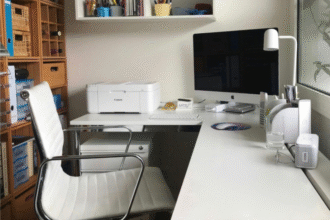Can Your BioTech Innovation Survive Singapore’s Regulatory Maze?
Your groundbreaking therapy could save lives. Your diagnostic tool might revolutionize healthcare. But here’s the brutal truth: brilliant science means nothing if your company structure can’t support it.
- Can Your BioTech Innovation Survive Singapore’s Regulatory Maze?
- Why Life Sciences Companies Face Unique Incorporation Challenges
- Choosing the Right Entity Structure for Life Sciences
- Navigating Regulatory Requirements and Licensing
- Foreign Founders and Local Requirements
- Intellectual Property Considerations During Incorporation
- Grant Programs and Government Support Schemes
- Banking and Financial Infrastructure
- Corporate Governance and Compliance Ongoing Requirements
- Common Mistakes That Cost BioTech Companies Dearly
- Frequently Asked Questions
- Your BioTech Venture Deserves Proper Foundation
Singapore has positioned itself as Asia’s biotech hub, attracting billions in life sciences investment. The opportunity is massive. Yet many biotech entrepreneurs stumble during incorporation, making costly mistakes that haunt them for years.
You’re not just registering another business. You’re navigating complex IP protection, specialized licensing, research grants, and regulatory frameworks that don’t apply to typical companies. This guide reveals what biotech and life sciences companies must know before incorporating in Singapore—from entity selection through regulatory compliance and funding access.
Why Life Sciences Companies Face Unique Incorporation Challenges
What makes biotech incorporation different?
The answer lies in regulatory complexity, intellectual property considerations, and funding requirements that traditional businesses never encounter.
Most companies incorporate and start operating immediately. Not biotech firms. You’ll need specific licenses before conducting research, manufacturing, or clinical trials. Your company structure must accommodate future patent transfers, research partnerships, and potential licensing deals with pharmaceutical giants.
Here’s the thing: getting your corporate foundation wrong creates problems that cost millions to fix later. Investor term sheets assume certain corporate structures. Patent assignments require proper legal entities. Government grants specify eligible company types.
Piloto Asia understands these nuances. Whilst they handle all types of company incorporation, their experience with specialized sectors means they can guide biotech entrepreneurs through requirements that generic corporate service providers often miss.
Choosing the Right Entity Structure for Life Sciences
Should you incorporate as a private limited company, limited liability partnership, or something else?
For biotech ventures, the answer is almost always a private limited company (Pte Ltd). This structure offers critical advantages that life sciences companies need.
Equity financing becomes straightforward with a Pte Ltd structure. Venture capitalists and biotech-focused investors expect this entity type. You can issue different share classes, accommodate employee stock option plans, and structure complex funding rounds that R&D-intensive companies require.
Intellectual property protection works better through corporate ownership. Your company, not individual founders, owns the patents and research data. This separation protects innovations when team members change and simplifies future licensing agreements.
Limited liability shields personal assets from research-related risks. Biotech ventures face unique liabilities—clinical trial complications, manufacturing defects, or IP disputes. Corporate structures contain these risks.
The exception? Academic spin-offs sometimes use different structures initially, but most transition to Pte Ltd before serious commercialization.
Navigating Regulatory Requirements and Licensing
Let’s address what keeps biotech founders awake at night: regulatory compliance.
Your incorporation is just the beginning. Operating a life sciences company in Singapore requires multiple specialized approvals depending on your activities.
Research facilities need approval from relevant authorities. Working with human tissues? You’ll register with the Human Biomedical Research Act requirements. Animal research requires AVA licensing. Even cell line work triggers specific compliance obligations.
Manufacturing operations fall under HSA (Health Sciences Authority) oversight. Good Manufacturing Practice (GMP) certification isn’t optional—it’s mandatory for producing pharmaceuticals, biologics, or medical devices in Singapore.
Clinical trials demand extensive documentation and approvals before enrolling a single patient. Your company must demonstrate proper structure, insurance coverage, and ethical oversight capabilities.
Sound familiar? Many biotech entrepreneurs underestimate the timeline for obtaining these approvals. Plan for 3-6 months minimum, sometimes longer for complex applications.
Foreign Founders and Local Requirements
Can international scientists and entrepreneurs establish biotech companies in Singapore?
Absolutely. Singapore actively recruits global biotech talent. But there are specific requirements when you register company in Singapore for foreigner operations.
Every company needs at least one local director. This person must be a Singapore citizen, permanent resident, or EntrePass holder ordinarily resident in Singapore. For biotech companies, choosing the right local director matters—you want someone who understands the sector, not just a nominee service.
Foreign shareholders can own 100% equity, which appeals to international biotech founders maintaining control of their innovations. Your scientists in Boston, researchers in Cambridge, or investors in Switzerland can hold full ownership whilst appointing a qualified local director.
Work visas become crucial for foreign founders planning to relocate. The EntrePass suits entrepreneur-scientists establishing innovative companies. Employment Passes work for foreign executives joining established biotech firms. Tech.Pass targets top-tier tech and science talent.
Piloto Asia’s immigration support helps biotech founders secure appropriate work authorization whilst incorporating their companies, coordinating both processes simultaneously rather than sequentially.
Intellectual Property Considerations During Incorporation
Here’s what matters most: protecting your innovations from day one.
Your company’s ACRA business profile won’t protect your IP, but how you structure incorporation determines your ability to secure and monetize intellectual property later.
Patent ownership should transfer to the company immediately upon incorporation. Individual founder ownership creates complications during funding rounds, partnership negotiations, and potential exits. Clear IP assignment agreements executed at incorporation prevent disputes later.
Trade secrets and know-how require proper confidentiality frameworks. Your constitution should address IP protection, employee invention assignment, and confidential information handling. Template constitutions miss these provisions.
Technology transfer agreements often exist when spinning out from universities or research institutions. Your corporate structure must accommodate these existing agreements whilst allowing future commercialization. This gets complex fast when multiple institutions or prior employers claim rights to underlying technology.
Licensing potential depends on clean IP ownership. Pharmaceutical partners won’t license technology from companies with murky IP chains. Investors won’t fund ventures where patent ownership remains unclear.
Grant Programs and Government Support Schemes
Why struggle with funding when Singapore offers substantial biotech support?
The government actively supports life sciences innovation through various schemes, but accessing these programs requires proper corporate structure and documentation.
| Grant Program | Funding Amount | Eligibility | Best For |
| SEEDS Capital | Up to S$500,000 matching | Early-stage tech companies | Pre-revenue biotech startups |
| Early Stage Venture Fund | Up to S$2 million | Innovative tech ventures | Post-proof-of-concept companies |
| T-Up | Up to S$500,000 | Companies <5 years old | Technology validation |
| Innovation and Capability Voucher | Up to S$10,000 | SMEs | Specific capability upgrades |
Most programs require Singapore-incorporated companies with substantial local operations. Your company structure, paid-up capital, and shareholder composition affect eligibility.
Application timelines stretch months. Budget 3-6 months from application to approval for most programs. This doesn’t work if you’re rushing incorporation at the last minute.
Piloto Asia helps biotech companies structure their incorporation to maximize grant eligibility, ensuring corporate documents align with program requirements from day one.
Banking and Financial Infrastructure
Let’s talk about something unglamorous but critical: getting a bank account.
Biotech companies face heightened scrutiny during bank account opening. You’re operating in a regulated sector, often with international transactions, complex funding structures, and extended pre-revenue periods.
Local banks (DBS, OCBC, UOB) offer comprehensive services but demand extensive documentation for biotech companies. Expect questions about your business model, funding sources, anticipated transaction volumes, and regulatory compliance.
International banks (HSBC, Standard Chartered, Citi) work well for companies with cross-border operations but maintain strict onboarding requirements for life sciences firms.
Digital banks provide alternatives but may lack specialized services biotech companies need—like handling research grant disbursements or international supplier payments in multiple currencies.
Want to know the secret? Start the banking process immediately after incorporation. Don’t wait until you need to receive funds or pay suppliers. The application process takes 4-8 weeks for biotech companies, sometimes longer if banks request additional compliance documentation.
Corporate Governance and Compliance Ongoing Requirements
Your obligations don’t end when incorporation completes.
Life sciences companies face ongoing compliance requirements beyond normal corporate duties. Annual returns and financial statements represent basic requirements every company meets. Biotech firms add layers of sector-specific compliance.
Company secretary requirements mandate appointing a qualified secretary within six months of incorporation. For biotech companies, choose someone familiar with life sciences regulatory frameworks, not just general corporate compliance.
Board composition matters more in regulated industries. You might feel pressure to appoint directors with specific qualifications, especially when pursuing certain grants or partnerships. Plan your board structure during incorporation, not after.
Statutory registers and records must be maintained properly. Biotech companies juggling IP agreements, licensing deals, and research collaborations need robust record-keeping from the start.
It’s frustrating when companies treat compliance as an afterthought. Piloto Asia’s company secretary services help biotech firms maintain proper governance whilst founders focus on science and commercialization.
Common Mistakes That Cost BioTech Companies Dearly
You might feel overwhelmed by the complexity. That’s completely normal.
Most biotech incorporation failures stem from predictable mistakes that proper planning prevents.
Rushing incorporation without IP clarity causes problems when investors conduct due diligence. Take time to document IP ownership, assignment agreements, and freedom-to-operate assessments before incorporating.
Choosing inappropriate share structures limits future fundraising flexibility. Biotech companies often need multiple funding rounds with different investor types. Your initial share structure should accommodate this reality.
Ignoring regulatory timeline means discovering too late that you can’t operate legally. Research licensing requirements before incorporating, not after.
Underestimating capital needs leads to undercapitalized companies that can’t credibly pursue grants or partnerships. S$1 paid-up capital might be legally sufficient, but it signals lack of seriousness to potential partners.
The solution? Partner with corporate service providers who understand biotech’s unique requirements and can coordinate incorporation with regulatory planning.
Frequently Asked Questions
How long does biotech company incorporation take in Singapore?
Basic incorporation through BizFile+ takes 1-3 business days. However, biotech companies need additional time for specialized planning. Expect 2-4 weeks for complete setup including IP documentation, appropriate company constitution drafting, and coordinating with local director appointments. Add another 4-8 weeks for bank account opening and initial regulatory registrations. Total timeline: 6-12 weeks from decision to operational company.
Can university researchers incorporate while employed?
Yes, but with important caveats. Employment agreements typically include IP assignment clauses. University researchers must disclose inventions and often need institutional approval before incorporating companies based on their research. Technology transfer offices facilitate spinout processes. Attempting incorporation without proper clearances creates legal complications that derail future fundraising. Work with your institution’s technology transfer office early.
What licenses do biotech companies need in Singapore?
This depends entirely on your activities. Research involving human tissues requires HBRA compliance. Manufacturing pharmaceuticals needs HSA licensing and GMP certification. Clinical trials demand IRB approval and HSA authorization. Import/export of controlled substances requires CNB permits. Medical device manufacturing has separate HSA requirements. Most biotech companies need multiple licenses. Identify requirements during incorporation planning, not after starting operations.
Your BioTech Venture Deserves Proper Foundation
Singapore’s life sciences ecosystem offers incredible opportunities for innovative biotech companies.
The incorporation process demands more attention than typical businesses, but getting it right unlocks access to grants, partnerships, and investment that fuel biotech success. Your corporate structure either enables or constrains your scientific ambitions.
From IP protection through regulatory compliance to banking infrastructure to grant eligibility, every incorporation decision ripples through your company’s future. The complexity is real, but so are the rewards for companies that establish proper foundations.
Piloto Asia specializes in helping innovative companies navigate Singapore’s incorporation requirements. Their comprehensive approach coordinates corporate structure, regulatory planning, and operational setup—particularly valuable for biotech ventures juggling science and business simultaneously.
Ready to transform your life sciences innovation into a properly structured Singapore company? The biotech boom continues, but only companies with solid corporate foundations capture the opportunity. Don’t let incorporation complexity delay your scientific impact.

















